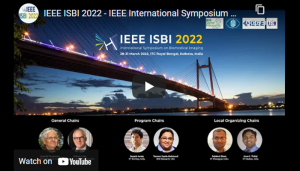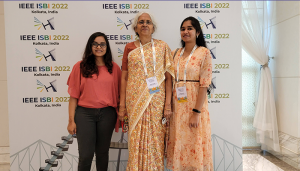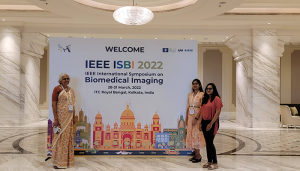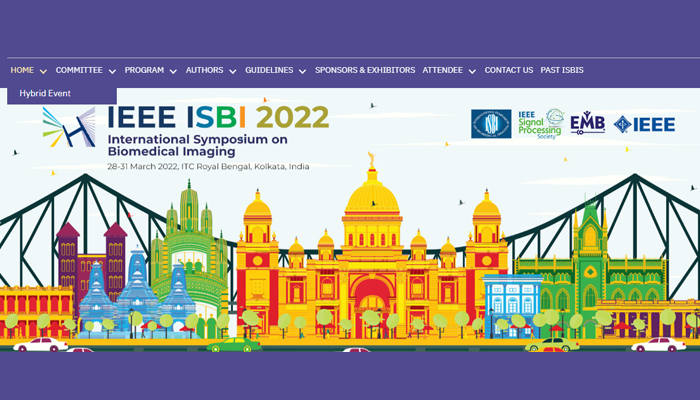Prof. Jayanthi Sivaswamy and her students presented the following paper at IEEE International Symposium on Biomedical Imaging (ISBI 2022) held at ITC Royal Bengal, Kolkata from 28 – 31 March. Prof. Jayanthi Sivaswamy was the General Chair of ISBI 2022.

- Incremental learning for a flexible CAD system design – Prathyusha Akundi, Jayanthi Sivaswamy. Research work as explained by the authors:
Deep neural networks suffer from Catastrophic Forgetting (CF) on old tasks when they are trained to learn new tasks sequentially, since the parameters of the model will change to optimize on the new class. The problem of alleviating CF is of interest to Computer aided diagnostic (CAD) systems community to facilitate class incremental learning (IL): learn new classes as and when new data/annotations are made available and old data is no longer accessible. However, IL has not been explored much in CAD development. We propose a novel approach that ensures that a model remembers the causal factor behind the decisions on the old classes, while incrementally learning new classes. We introduce a common auxiliary task during the course of incremental training, whose hidden representations are shared across all the classification heads. Since the hidden representation is no longer task-specific, it leads to a significant reduction in CF. We demonstrate our approach by incrementally learning 5 different tasks on Chest-Xrays and compare the results with the state-of-the-art regularization methods. Our approach performs consistently well in reducing CF in all the tasks with almost zero CF in most of the cases unlike standard regularization-based approaches.
- A Method to remove size bias in subcortical structure segmentation – Mythri V, Alphin J Thottupattu, Naren Akash R J, Jayanthi Sivaswamy. Research work as explained by the authors:
Segmentation and analysis of sub-cortical structures is of interest in diagnosing some neurological diseases. Segmentation is a challenging task because of brain tissue ambiguity and data scarcity. Deep learning (DL) solutions are widely used for this purpose by considering the problem as a semantic segmentation of brain. In general, DL approaches exhibit a bias towards larger structures when training is done on the whole brain. We propose a method to address this problem wherein a pre-training step is used to learn tissue characteristics and a rough ROI extraction step aids focusing on local context. We use a Residual U-net for demonstrating the proposed method. Experiments on the IBSR and MICCAI datasets show that our proposed solution leads to an improvement in segmentation performance in general with medium and small size structures benefiting significantly. The performance with the proposed method is also marginally better than a more complex, state of art sub cortical structure segmentation method. A strength of the proposed results is that it can also be applied as a modification to any existing segmentation solution.


The IEEE International Symposium on Biomedical Imaging (ISBI) is a scientific conference dedicated to mathematical, algorithmic, and computational aspects of biological and biomedical imaging, across all scales of observation. It fosters knowledge transfer among different imaging communities and contributes to an integrative approach to biomedical imaging.
ISBI is a joint initiative from the IEEE Signal Processing Society (SPS) and the IEEE Engineering in Medicine and Biology Society (EMBS). The 2022 meeting was a hybrid event organized physically in Kolkata and also virtually. The workshop had tutorials, and a scientific program composed of plenary talks, invited special sessions, challenges, as well as oral and poster presentations of peer-reviewed papers.

